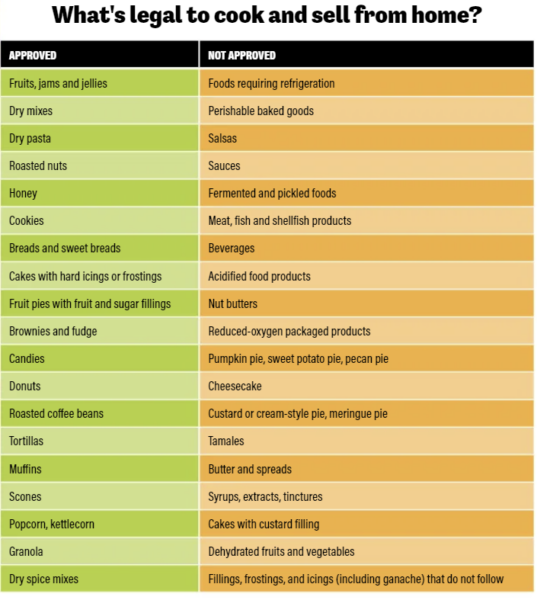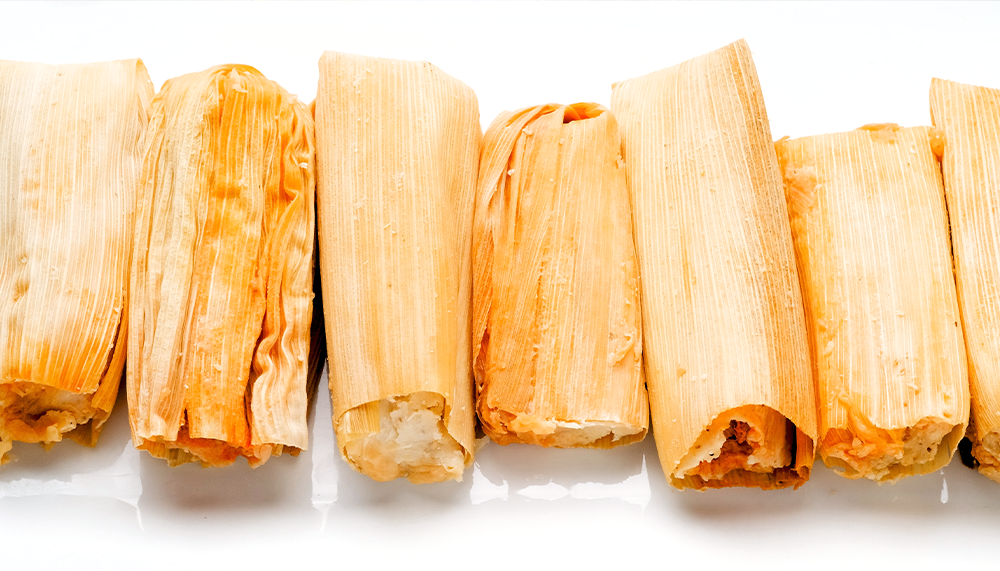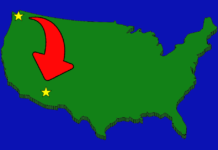Maria serves up home-cooked tamales on weekends at the Hidden Valley swap meet.
She cooks them in the kitchen of her home.
She’s a single mom whose 6-year-old son attends Legacy Traditional charter school. He sits in her SUV while she works under a tent she set up as a temporary restaurant on the dusty lot off Papago Road.
She lost her job two months ago as a server in Maricopa and makes do selling tamales and burritos to hungry shoppers in the city’s rural outskirts.
“It’s just to maintain, just to help pay the bills,” said Maria, whose full name is being withheld as she knows the way she makes a living is illegal in Arizona.
The same goes for Christopher Cisneros Gomez, a local food truck worker who takes orders and makes tamales with his wife out of their home kitchen in Santa Rosa Springs.
Arizona’s so-called tamale bill — proposed legislation that would have made it legal for home-based “cottage food” businesses to cook certain foods at home and sell them — was vetoed by Gov. Katie Hobbs last year. Neither Maria nor Gomez had any idea what they were doing was illegal when they started slinging homemade tamales to hungry Maricopans.
“We don’t do it a lot,” Gomez said, adding it is traditional for Mexican-American families to make tamales during the holiday season.
Today, tamales are on the Arizona Environment Health Department’s list of prohibited foods that can’t be produced and sold out of homes.
The concern is food-borne illness, health officials said.
There’s no documented case of anyone in Arizona ever becoming ill after eating a homemade tamale.
The tamale bill, officially House Bill 2042, was reintroduced last month by Rep. Travis Grantham (R-Gilbert), whose legislation was vetoed last year.
“This bill would significantly increase the risk of food-borne illness by expanding the ability of cottage food vendors to sell high-risk foods,” Hobbs said in her veto letter. “It fails to establish minimum standards for inspection of certification of home-based food businesses and could limit the ability of [the state] to investigate food-borne disease outbreaks.”
The veto angered Grantham and lawmakers on both sides of the aisle. It shocked some Democrats, who supported the bill.
 Maricopa’s own state Rep. Teresa Martinez agreed with fellow Republican and state Sen. TJ Shope, calling Hobbs’ action “racist.” Both lawmakers representing Maricopa are Latino.
Maricopa’s own state Rep. Teresa Martinez agreed with fellow Republican and state Sen. TJ Shope, calling Hobbs’ action “racist.” Both lawmakers representing Maricopa are Latino.
Martinez said Hobbs’ action implied those cooking tamales were doing so in risky conditions.
“[Hobbs] said it was because of unclean kitchens, which a lot of Hispanics found offensive,” Martinez said.
There was not enough Democrat support to override Hobbs’ veto.
Grantham’s second attempt to pass the tamale bill defines a home kitchen, something missing from last year’s proposal.
It also addresses the governor’s concerns about the ability of the state health department to have oversight, giving the agency the power to revoke a license or to fine someone who breaks the rules included in a food handler’s permit.
The governor told Capitol Media Services she isn’t seeking to allow health officials to make unannounced inspections.
Whether food inspectors examine kitchens before they are allowed to be used is an issue that must be resolved, the newspaper reported.
HB 2042 has other provisions limiting what can be made in home kitchens and how they can be marketed.
For example, any product that contains dairy or meat must be sold and delivered in person. And if the product is potentially hazardous or requires time or temperature controls, it must be maintained at those temperatures during delivery, cannot be transported more than once and cannot be transported for more than two hours.
The bill bans infusing cannabis oil into tamales and gives health officials the power to investigate a food-borne illness.



![Province writer opens the athlete’s mind in new book Tom Schuman, a Province resident, poses with a copy of his new book, "My Wide World of Sports," outside his home on May 2, 2024. [Monica D. Spencer]](https://www.inmaricopa.com/wp-content/uploads/2024/05/spencer-050224-tom-schuman-sports-book-web-01-218x150.jpg)










![City gave new manager big low-interest home loan City Manager Ben Bitter speaks during a Chamber of Commerce event at Global Water Resources on April 11, 2024. Bitter discussed the current state of economic development in Maricopa, as well as hinting at lowering property tax rates again. [Monica D. Spencer]](https://www.inmaricopa.com/wp-content/uploads/2024/04/spencer-041124-ben-bitter-chamber-property-taxes-web-218x150.jpg)

![Province writer opens the athlete’s mind in new book Tom Schuman, a Province resident, poses with a copy of his new book, "My Wide World of Sports," outside his home on May 2, 2024. [Monica D. Spencer]](https://www.inmaricopa.com/wp-content/uploads/2024/05/spencer-050224-tom-schuman-sports-book-web-01-100x70.jpg)



We need to come together as a whole community and SAVE THE TAMALES! This is a Public Service Announcement. People, lets save the Tamales!